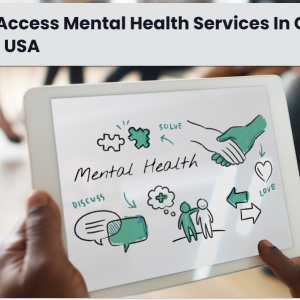
Why Cultural Competence in Healthcare Could Save Lives
Imagine walking into a hospital where no one understands your language, culture, or values. How would you feel? Now imagine the same hospital with staff who greet you in your language, acknowledge your traditions, and tailor your care to your needs. The difference? Cultural competence.
In today’s diverse world, cultural competence in healthcare isn’t a luxury—it’s a necessity. Let’s explore how it transforms patient care and why every healthcare provider should embrace it.

What Is Cultural Competence in Healthcare?
At its core, cultural competence is more than just understanding different languages. It’s about creating a system that respects and values the beliefs, customs, and backgrounds of every patient. Think of it as a bridge that connects healthcare providers and patients from diverse walks of life.
Example:
A hospital with bilingual staff, culturally inclusive policies, and patient-centered practices creates an environment where everyone feels welcome.
Why Does Cultural Competence Matter?
1. It Saves Lives
Imagine this:
- A patient, Aliyah, needs urgent surgery. Without an interpreter, her consent is delayed, risking her life.
- A culturally competent hospital, however, has interpreters on-call, ensuring smooth communication and timely care.
Which scenario would you choose for Aliyah?
2. It Builds Trust
Trust is the foundation of effective healthcare.
- Insensitive Approach: Maria dismisses a patient’s request for a female doctor, causing discomfort.
- Culturally Competent Approach: Sarah accommodates the request, making the patient feel respected and valued.
3. It Reduces Health Disparities
Compare two families:
- The Smiths easily navigate the healthcare system thanks to their familiarity with it.
- The Garcias, Spanish-speaking immigrants, struggle to access care.
A culturally competent facility bridges this gap by offering bilingual staff and culturally relevant resources.
Cultural Competence: A Tale of Two Clinics
How to Foster Cultural Competence in Healthcare
Step 1: Learn
- Dive into Diversity: Research the cultures, languages, and beliefs of your patient population.
- Ask the Right Questions: What barriers are diverse populations facing at your facility?
Step 2: Acknowledge
- Embrace Differences: Recognize that diversity is a strength, not a challenge.
- Show Respect: Honor cultural preferences, like dietary restrictions or gender-specific requests.
Step 3: Act
- Train Your Team: Offer cultural competence training to staff.
- Hire Inclusively: Reflect your community’s diversity in your workforce.
- Partner with Communities: Collaborate with local organizations to improve outreach.
Cultural Competence in Action: Real-Life Examples
Scenario 1: Multilingual Patient Care
A hospital notices a rise in patients from multilingual backgrounds. Instead of ignoring the trend, it:
- Hires interpreters for key languages.
- Updates signage to include multiple languages.
- Conducts staff workshops on cultural humility.
Scenario 2: Socioeconomic Sensitivity
A clinic realizes its patients struggle to afford medications. It:
- Partners with nonprofit organizations for financial aid.
- Introduces sliding-scale fees.
- Offers free educational workshops on preventive care.
Comparison: Competent vs. Insensitive Care
| Without Cultural Competence | With Cultural Competence |
|---|---|
| Patients feel excluded and misunderstood. | Patients feel valued and supported. |
| Miscommunication leads to medical errors. | Clear communication ensures accurate care. |
| Healthcare disparities widen due to neglect. | Equitable care bridges gaps and saves lives. |
The Future of Inclusive Healthcare
Cultural competence isn’t a checkbox, it’s a mindset. It’s about listening, learning, and adapting to meet the unique needs of every patient. By embracing diversity, healthcare providers can create a system where everyone feels seen, heard, and cared for.
So, let’s ask ourselves:
- Are we truly serving every patient equally?
- What steps can we take today to make healthcare more inclusive?





